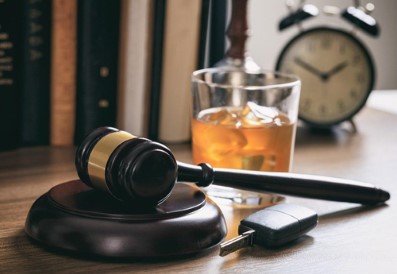The Lasting Consequences Of A DWI

In this article, you will learn…
- How long a DWI conviction will remain on your record,
- What it means to get a step down, and
- The difference between a DWI and underaged drinking and driving offenses.
Does A Prior DWI Conviction More Than 10 Years Ago Count As A Previous Offense?
DWI convictions, breath test refusal convictions, and traffic offenses remain on a person’s driving record forever. Convictions for any traffic offense, including DWI and breath test refusal convictions, cannot be expunged. But courts will “step-down” punishment for certain offenders.
People often think that a DWI or breath test refusal conviction more than ten years old will be wiped off their record. Unfortunately, that isn’t the case. Prior DWI and breath test refusal convictions can have lasting consequences depending on what happens later in life. Even if a conviction took place in the 1970s when the law was much different, that conviction would still count as a prior conviction for purposes of punishment unless you can get some form of post-conviction relief.
For multiple DWI and breath test refusal offenders, the court will consider all the convictions in their entire life. If ten years have gone by since the last DWI or breath test offense, however, the court will take it down a notch. That is, if ten or more years have passed since the first offense, the court will treat a second conviction as if it was a first offense for purposes of punishment. Similarly, if ten or more years have passed since the second offense, the court will treat a third conviction as if it was a second offense for purposes of punishment. However, if less than ten years have passed since the second offense, even if it was treated as a first offense, the court will treat the third offense as a third offense for purposes of punishment. If there are three or more DWI convictions in a person’s lifetime, no step-down is available.
One wrinkle to the step-down calculation is this: Prior breath test refusal convictions will enhance later breath test refusal convictions, but they will not enhance later DWI convictions. On the other hand, prior DWI convictions will enhance both later DWI and breath test refusal convictions.
What Is The DWI Law For Those Under The Age Of 21?
Underage drinking and driving is a separate offense from DWI. No person under the age of 21 may consume alcohol in New Jersey except in very limited circumstances. The legal limit for all drivers is 0.08. For underage drivers, the legal limit is 0.01. But operating a motor vehicle with a blood alcohol content [“BAC”] greater than 0.01 but less than 0.08 is a different offense from a DWI. It is what we call a “per se” offense because it’s defined not by any level of impairment or intoxication but by simply having a measurable BAC in your body. Many states call these zero-tolerance laws. While not exactly zero tolerance, they are pretty darn close.
If the cop looks at the driver’s license and sees that the driver is under the age of 21 and the driver admits to drinking any alcoholic beverage, the cop will almost automatically have probable cause to make an arrest right there. Probable cause is nothing more than the justification to continue the investigation by getting a breath sample.
With the guidance of a skilled attorney for DUI Law, you can have the peace of mind that comes with knowing that we’ll make it look easy. For more information on DUI Law in New Jersey, an initial consultation is your next best step. Get the information and legal answers you are seeking by calling (732) 218-9090 today.

